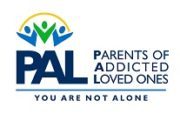In working with parents of addicted loved ones, a common question I’m asked is: “why am I having these reactions, symptoms, feelings? And are they ‘normal?’” In many cases, when parents come to see me, they have endured incessant chaos with their addicted loved one which has left them feeling shocked, bewildered, angry, exhausted, hopeless, anxious, and much more. Many of these clients never imagined they would be sitting in a room with a therapist recounting the excruciating events that led them to my office. The large majority of these clients also may not realize that much of what they are experiencing can be identified as trauma responses to their environment and relationship with their addicted loved one.
When using the term “trauma,” it’s expected that people will have very different definitions and understanding of how that term is applied. What I hear most often is, “it’s been hard, but I wouldn’t use the term ‘trauma.’ What I’ve experienced isn’t nearly as bad as …” This is part of the human condition; to compare our circumstance with that of another person who may have had a more ‘significant’ event take place. The most helpful definition I’ve heard comes from the work of Pia Mellody where she describes trauma as anything less than nurturing. That means trauma is subjective to each individual’s experience along with his or her level of resilience. Trauma is often associated with addiction (for both the addicted loved one and the parent), but that may not always be the case. A helpful tool I use with clients when they first come to therapy is a checklist of common reactions to trauma. This is beneficial for two reasons; it provides some education around trauma and the ways it manifests while also personalizing it to each client’s experience. It gives the client and myself the ability to objectively identify if there are trauma responses present and the extent of those responses. Below you will find the categories, as adapted from Mary S. Gilbert, Ph.D.:
Common Reactions to Trauma
After Trauma, Why You Feel Thrown for a Loop
Physical Reactions: nervous energy, jitters, muscle tension, upset stomach, rapid heart rate, dizziness, lack of energy, fatigue, teeth grinding
Mental Reactions: changes in the way you think about yourself, changes in the way you think about the world, changes in the way you think about other people, heightened awareness of your surroundings, hypervigilance, lessened awareness, disconnection from yourself, dissociation, difficulty concentrating, poor attention, memory problems, difficulty making decisions, intrusive images, nightmares
Emotional Reactions: fear, inability to feel safe, sadness, grief, depression, guilt, anger, irritability, numbness, lack of feelings, inability to enjoy anything, loss of trust, loss of self-esteem, feeling helpless, emotional distance from others, intense or extreme feelings, feeling chronically empty, blunted then extreme feelings
Behavioral Reactions: becoming withdrawn or isolated from others, easily startled, avoiding places or situations, becoming confrontational and aggressive, change in eating habits, loss or gain in weight, restlessness, increase or decrease in sexual activity
Once these reactions have been identified, we then assess the level of disturbance or the impact these reactions are having on the person’s daily functioning. It could be subtle, moderate, or even severe for some. Much of the work in therapy is focused on establishing and strengthening internal and external resources for the client so that he or she is able to have greater, more sustainable access to what is referred to as the window of tolerance. This window is the space where a person is able to think and feel simultaneously and experiences feel tolerable.
When working with parents of addicted loved ones, the goal is to meet them exactly where they are when they arrive. When they ask the questions posed at the beginning of this article, I hope to instill a sense that their experience matters and their responses are very much ‘normal,’ particularly when viewed from a trauma-informed perspective.
Our stories matter. Our experiences matter. The healing process begins by recognizing the reality of our story and experiences. Not in comparison with the stories or experiences of others who have had it ‘worse off,’ but on their own while being held with compassion and empathy.
Grace & peace,
Ashley


Comments are closed.